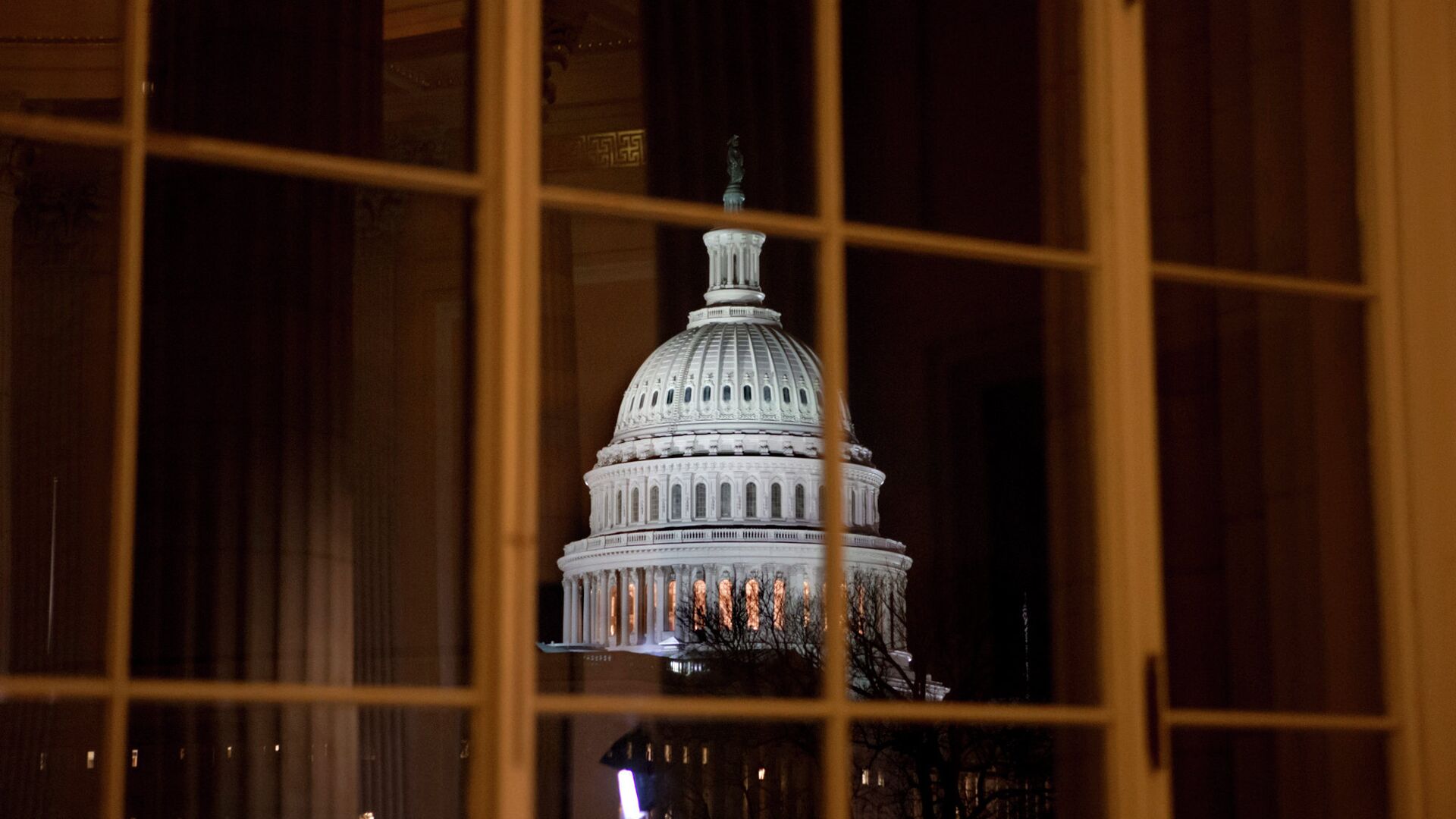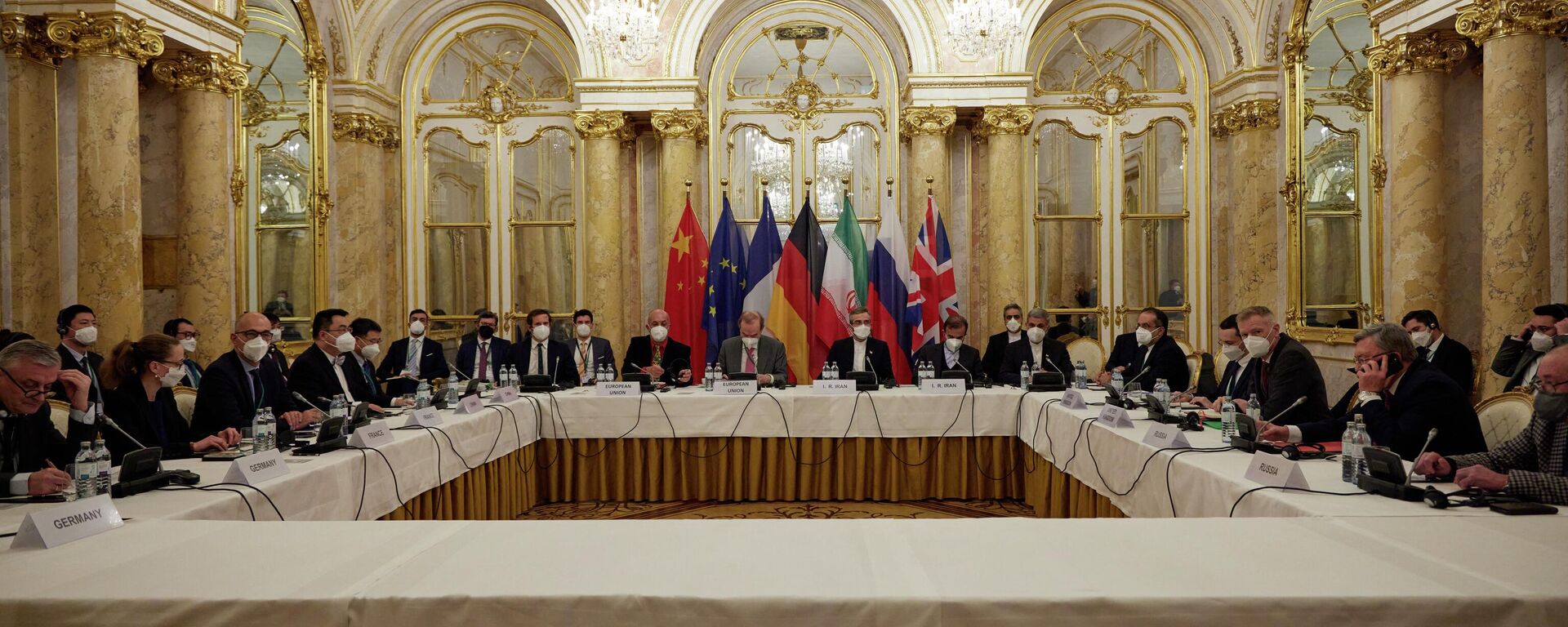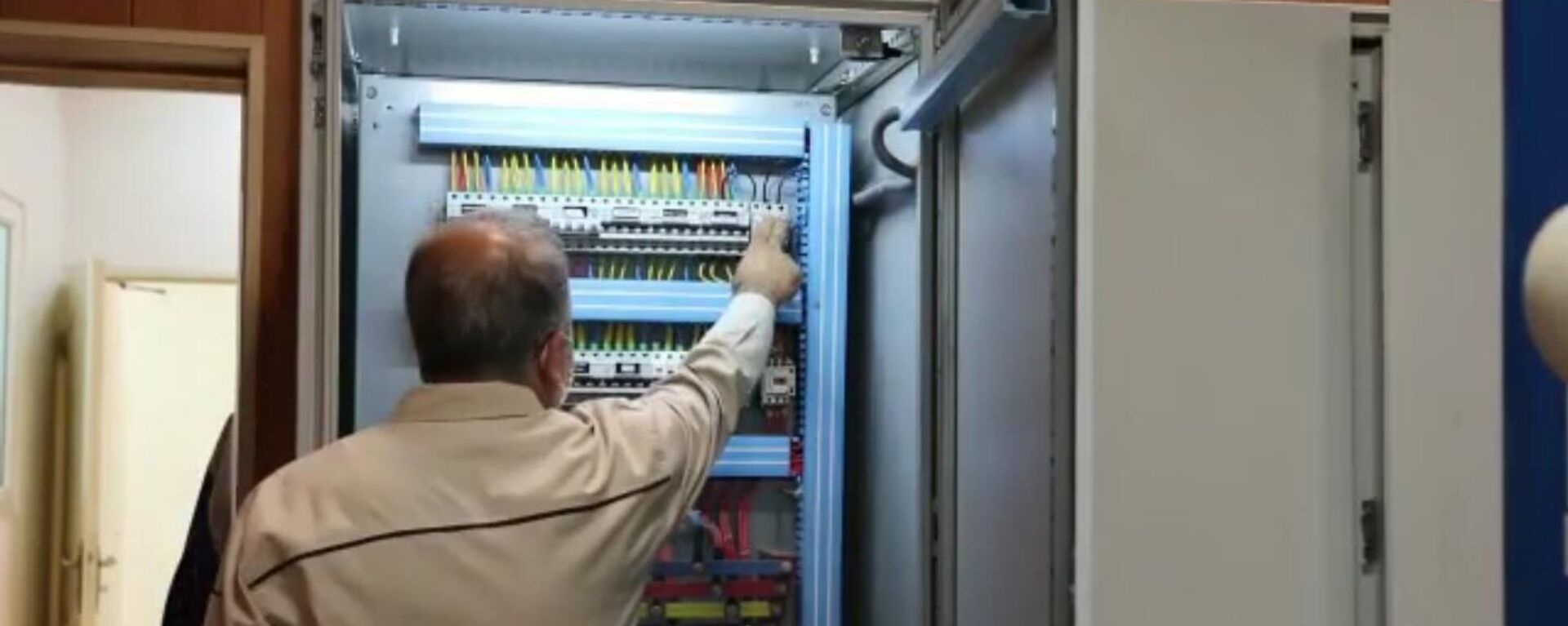https://sputnikglobe.com/20220620/in-rare-expression-of-bipartisan-unity-us-lawmakers-agree-iran-nuclear-deal-is-dead-1096498861.html
In Rare Expression of Bipartisan Unity, US Lawmakers Agree Iran Nuclear Deal is Dead
In Rare Expression of Bipartisan Unity, US Lawmakers Agree Iran Nuclear Deal is Dead
Sputnik International
The US, Iran and other signatories to the 2015 Joint Comprehensive Plan of Action nuclear deal began talks in Vienna last year aimed at restoring the treaty... 20.06.2022, Sputnik International
2022-06-20T18:17+0000
2022-06-20T18:17+0000
2023-07-31T16:59+0000
iran
us
us senate
lawmakers
joint comprehensive plan of action (jcpoa)
iran nuclear deal
https://cdn1.img.sputnikglobe.com/img/101700/24/1017002485_0:104:2000:1229_1920x0_80_0_0_a1aef3fbfa4049bbc4f51accb773c817.jpg
Senior US Congressional leaders from both parties have expressed agreement that the Iran nuclear deal is dead, and blamed the Iranian side for the impasse.Menendez, a Democrat from New Jersey, blamed “conflict inside Iran” for the lack of a “clear pathway forward.”Senator Ben Cardin, a Democrat from Maryland who is a senior member of the Foreign Relations Committee, echoed Menendez’s sentiments, saying that “the US has put forward a proposal” and that “the ball is really in the Iranians’ court.”Senator James Risch, a Senate Foreign Relations member from the GOP, said he has no clue “where the negotiations stand” and complained that they “should’ve been over” by now.One anonymous senator told the outlet that Iran was making “an unreasonable demand” of the Biden administration by tying an agreement on the JCPOA with the lifting of a designation declaring the Islamic Revolutionary Guard Corps a “terrorist organization.”“The odds of them getting a deal without relinquishing on that is tiny,” the lawmaker said.The Trump administration designated the IRGC as a foreign terrorist organization in 2019, at the height of the raging diplomatic conflict between Washington and Tehran. Iran responded by designating the entire US military as a “terrorist organization.” In January 2020, after the US drone strike assassination of IRGC Quds Force commander Qasem Soleimani, Iran’s parliament labeled the Pentagon and all affiliated entities as terrorist organizations.Iranian Foreign Ministry spokesman Saeed Khatibzadeh indicated Monday that Tehran remains committed to the JCPOA negotiations, notwithstanding the Biden White House’s pursuit of hostile policies similar to those of its predecessor.The spokesman stressed that if the US agreed to lift all sanctions and return to talks, Iran would “move toward that direction as well.” He further warned that any new sanctions against Iran would make the situation more difficult for the US itself.The JCPOA was signed in 2015, promising Iran sanctions relief in exchange for limitations on its nuclear energy program. The Trump administration unilaterally withdrew from the agreement in 2018 amid heavy Israeli lobbying. Iran responded by giving the JCPOA’s Western European signatories and the European Union a one-year window to find the means to bypass crushing US sanctions. When the deadline ran out, Iran began to increase its uranium enrichment and stockpiling well beyond the limits set out by the JCPOA, while maintaining that it had no plans to pursue nuclear weapons. On the campaign trail in 2020, Joe Biden promised to neutralize the diplomatic crisis with Iran and restore the JCPOA. Talks began in Vienna in 2021, but have dragged on for over a year amid refusals by both sides to be the first to make concessions. The Islamic Republic has argued that since the US was the first to violate the JCPOA, it’s up to the Biden White House to show good will by lifting restrictions set by Donald Trump, including the “terrorism” label on the IRGC. Washington has instead demanded verifiable evidence of the Iranian nuclear program’s dramatic reduction of nuclear fuel stockpiling and enrichment.
https://sputnikglobe.com/20220620/iran-intends-to-continue-talks-on-nuclear-deal-countrys-foreign-ministry-says-1096495730.html
https://sputnikglobe.com/20220610/watch-iran-switching-off-iaea-security-cameras-after-accusing-watchdog-of-ignoring-goodwill-1096188583.html
iran
Sputnik International
feedback@sputniknews.com
+74956456601
MIA „Rosiya Segodnya“
2022
News
en_EN
Sputnik International
feedback@sputniknews.com
+74956456601
MIA „Rosiya Segodnya“
Sputnik International
feedback@sputniknews.com
+74956456601
MIA „Rosiya Segodnya“
iran, us, us senate, lawmakers, joint comprehensive plan of action (jcpoa), iran nuclear deal
iran, us, us senate, lawmakers, joint comprehensive plan of action (jcpoa), iran nuclear deal
In Rare Expression of Bipartisan Unity, US Lawmakers Agree Iran Nuclear Deal is Dead
18:17 GMT 20.06.2022 (Updated: 16:59 GMT 31.07.2023) The US, Iran and other signatories to the 2015 Joint Comprehensive Plan of Action nuclear deal began talks in Vienna last year aimed at restoring the treaty and resolving the rift caused by the Trump administration’s unilateral pullout in 2018. Tehran indicated Monday that it’s ready to continue talks, notwithstanding “all American violations.”
Senior US Congressional leaders from both parties have expressed agreement that the Iran nuclear deal is dead, and blamed the Iranian side for the impasse.
“I’m not optimistic there will be such a deal. The administration believes that strategically it makes sense to keep the offer on the table, but I don’t see the pathway forward. That’s my own view,” Senate Foreign Relations chairman Bob Menendez
told The Hill.
Menendez, a Democrat from New Jersey, blamed “conflict inside Iran” for the lack of a “clear pathway forward.”
Senator Ben Cardin, a Democrat from Maryland who is a senior member of the Foreign Relations Committee, echoed Menendez’s sentiments, saying that “the US has put forward a proposal” and that “the ball is really in the Iranians’ court.”
Senator James Risch, a Senate Foreign Relations member from the GOP, said he has no clue “where the negotiations stand” and complained that they “should’ve been over” by now.
“They promised us it was going to end in February if there wasn’t a deal,” Risch, an Idaho Republican, said.
One anonymous senator told the outlet that Iran was making “an unreasonable demand” of the Biden administration by tying an agreement on the JCPOA with the lifting of a designation declaring the Islamic Revolutionary Guard Corps a “terrorist organization.”
“The odds of them getting a deal without relinquishing on that is tiny,” the lawmaker said.
The Trump administration designated the IRGC as a foreign terrorist organization in 2019, at the height of the raging diplomatic conflict between Washington and Tehran. Iran responded by designating the entire US military as a “terrorist organization.” In January 2020, after the US drone strike assassination of IRGC Quds Force commander Qasem Soleimani, Iran’s parliament labeled the Pentagon and all affiliated entities as terrorist organizations.
Iranian Foreign Ministry spokesman Saeed Khatibzadeh indicated Monday that Tehran remains committed to the JCPOA negotiations, notwithstanding the Biden White House’s pursuit of hostile policies similar to those of its predecessor.
“In spite of all American violations and the continuation of Trump’s approach, this train has not yet derailed,” Khatibzadeh
said. “We are ready for a good, lasting and effectual agreement and consider that all grounds are prepared to achieve it.”
The spokesman stressed that if the US agreed to lift all sanctions and return to talks, Iran would “move toward that direction as well.” He further warned that any new sanctions against Iran would make the situation more difficult for the US itself.
The JCPOA was signed in 2015, promising Iran sanctions relief in exchange for limitations on its nuclear energy program. The Trump administration unilaterally withdrew from the agreement in 2018 amid heavy Israeli lobbying. Iran responded by giving the JCPOA’s Western European signatories and the European Union a one-year window to find the means to bypass crushing US sanctions. When the deadline ran out, Iran began to increase its uranium enrichment and stockpiling well beyond the limits set out by the JCPOA, while maintaining that it had no plans to pursue nuclear weapons.
On the campaign trail in 2020, Joe Biden promised to neutralize the diplomatic crisis with Iran and restore the JCPOA. Talks began in Vienna in 2021, but have dragged on for over a year amid refusals by both sides to be the first to make concessions. The Islamic Republic has argued that since the US was the first to violate the JCPOA, it’s up to the Biden White House to show good will by lifting restrictions set by Donald Trump, including the “terrorism” label on the IRGC. Washington has instead demanded verifiable evidence of the Iranian nuclear program’s dramatic reduction of nuclear fuel stockpiling and enrichment.





